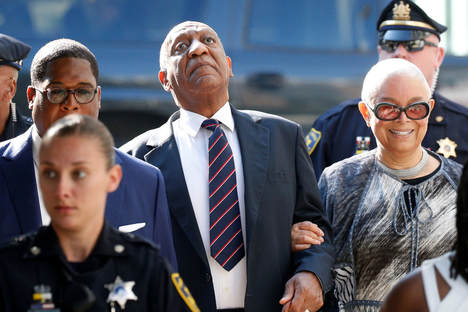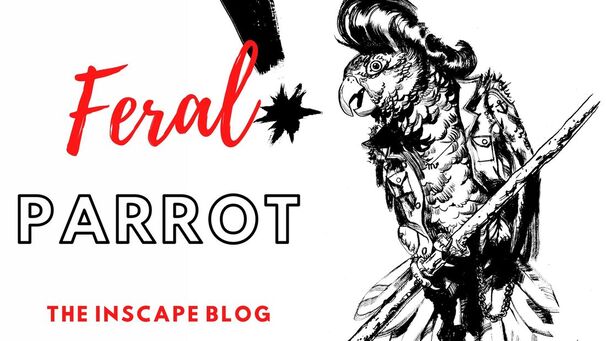- Folio No. 9
- About
- Feral Parrot : The Blog
- INTERVIEWS
- SUBMISSIONS
-
ISSUE ARCHIVE
- PRINT Chapbook No.6 Healing Arts
- Online Issue No.9
- Online Issue No.1 Fall 2016
- Online Issue No.2 Spring 2017
- ONLINE Issue No.3 Fall 2017
- PRINT Vol 72 No 2 Fall 2017
- PRINT Vol 73 No.1 Fall 2018
- ONLINE Issue No. 4 Fall 2018
- Online Issue No.5 Summer 2018
- FOLIO No.1 Fall 2018 VOTE
- ONLINE Issue No.6 Fall 2018 Fall Spirituality
- FOLIO 2 Fall 2019 Celebrating Dia De Los Muertos
- FOLIO No.3 -- Moon Moon Spring 2019
- FOLIO No.4 Celebrating New PCC Writers
- FOLIO No.5 City of Redemption
- FOLIO No.6 Spring 2020
- FOLIO No. 7 - Winter 2021 Into the Forest
- 2022 Handley Awards
- Inscape Alumni Board
- PRINT Chapbook No. 7 Healing Arts
- Blog
- Untitled
 Photo by Reuters/Brendan McDermid Photo by Reuters/Brendan McDermid by Becky Nava A part of me is deeply saddened by the onslaught of individuals, namely women, coming forward with their shared experience of abuse and manipulation at the hands of men in power. Yet, another revolutionary part of me wants to dance upon the graves of these men’s careers with fierce vitriol and reckless abandon, a demolisher of patriarchal values. Why is this? Amidst these moments of female empowerment and unification lies an angry cynic that cannot resolve why it has taken so long for women to be heard. I wrestle with whether or not the recent triumphs against oppression can ignite real systemic change, as we look at more than just toppling figureheads, but continuing to work together to combat the really deep-rooted misogyny that plagues our daily lives. Many seem unnerved by the slew of allegations, though if we’re to take literature as a mirror of reality, a reflection of the social norms and mentality within its times, the institutional link between men in power and exploitative sexual violence against women has been well-documented. Voices in literature, portrayed in the characters of men and women alike, have given historical context to this malignant relationship among the sexes and societal gender roles. Yet, the imbalance of power and privilege often endowed to men, uplifted by some and condemned by others, is a constant throughout many of the classics, and this extension into our lives should come as no surprise, but should enlighten us and reinforce our beliefs in the importance of change. Sylvia Plath’s The Bell Jar highlights the unrealistic and exceedingly damaging effects of gender roles on the female psyche. In particular, the novel reflects on the performative facets of life as a woman. The constant need to appease others while presenting an aura of likeability and poise. Women are not allowed to be nuanced, but instead must conform to cookie cutter roles passed down from increasingly antiquated beliefs. Among them, the roles of doting wife, caring mother, and benevolent daughter - all defined by (and catering to) male convenience. To deviate from pre-established roles by ‘daring’ to focus on career or one’s self, results in immediate dismissal as cold and unfulfilled, a life of multiplicity for a woman remiss of social acceptability. And, if individual care is skewed as negative, female sexuality is punishable. This can be evidenced in Offred, the protagonist in Margaret Atwood’s The Handmaid’s Tale, and Hester Prynne, the infamous adulteress in The Scarlet Letter. Both women must grapple with the omnipresent expectations that promote complacency within a society, and actively work to strip away any sense of personhood. This socially ostracizing nature comes to a head in “No Name Woman”, a short story by Maxine Kingston, in which the speaker’s aunt has been written out of their family history for getting pregnant outside of wedlock. The woman is shunned by her family, her home ransacked and sacrificially ravaged by her fellow villagers. Seeing no future for her or her child, she plunges into a well, committing suicide. The man bears no responsibility in the eyes of society, he himself a victim of the woman’s sexual allure. This is a startling juxtaposition to the violence and hatred that the woman endures for the same act. The need to shame women for their sexuality also influences female self-perception, as it internalizes misogynistic values, pressuring them into casting doubt on their own experiences and emotions. The oppressive constraints of their environment or Atwood’s fictional landscape doesn’t seem quite so fictional with the ‘pussy grabbing’ gentleman occupying the White House. Or, with the existence of Roy Moore’s campaign, a Republican Senate candidate by day, and a nightmare to the countless women he has preyed upon and assaulted, not to mention the numerous legislative attacks on women’s legal, workplace, and female reproductive rights he has championed as a Justice of The Supreme Court of Alabama. In more contemporary works, Game of Thrones author George R. R. Martin has been criticized for his consistent and cruel portrayal of violence against women. It’s disheartening that we are more concerned with the symbolic portrayal of fictional women than the voices of real women. Like Dylan Farrow, Woody Allen’s adopted daughter, who in an open letter describes the abuse she endured at the hands of Allen. Yet, his films continue to be produced, his work acclaimed and awarded, as her voice withers. This begs the question, what chance do those without the luxury of her platform have of being heard? Martin’s “needless violence” comments on the means by which men have oppressed and exploited women as an excision of dominance that has been unpunished throughout history. And quite frankly, the frequency with which it appears in his work, authentically captures the experience of living as a woman in society. To exclude sexual assault from the narrative is an act of erasure, as it invalidates generations of shared trauma and oppression. Grace, by PCC’S writer in residence Natashia Deon, also maintains a heavy focus on the subjugation of women within America's post abolition Reconstruction Era, and gives voice to a grossly underrepresented and continuously exploited group - African-American women. A large facet of this struggle is related to notions of their sexuality, in which black women are stereotypically perceived to be extremely promiscuous, and as such constantly fetishized, their race reduced to a means by which to fulfill male eroticism, white males in particular. However, as women, they are also expected to comply with notions of sexual purity. These conflicting roles shape the experience of black women within the patriarchy, and shed light on the variance among women as it pertains to race. While the story may seem dated, the same antiquated gender roles make it feel more relevant than ever, as the importance of recognizing and promoting intersectionality has never been so vital. Sexual violence has never been limited to women, we must acknowledge men as victims as well. Perks of Being a Wallflower depicts the oft neglected side of sexual abuse, capturing the aftermath through the eyes of the victim, a teenage boy named Charlie. Throughout the novel, details of the abuse are murky, as Charlie’s coping mechanisms work to deny that the abuse took place. The abuser, his Aunt Helen, complicates the traumatic situation further, as familial tensions and guilt clash with gender roles that dictate the role of predator and victim. In a world in which it takes 60 women to permeate Bill Cosby’s renown, the 60:1 ratio doesn’t necessarily add up to show the progress we have made, but it does inherently reveal the value we place on male reputation. Sexual assault is exceedingly pervasive within our everyday lives, and truthfully it often manifests among those closest to us. The prevalence of rape culture, gendered stigma, and male privilege is clear. Pick up a book, flip through the channels, scroll your feed, and hints of the overarching patriarchal dictates will permeate. The medium is irrelevant if the voices cry the same fouls, but literature will not cease to echo these calls to action.
0 Comments
Leave a Reply. |
IMPORTANT NOTE:
PCC Inscape Magazine, housed at Pasadena City College, is following Coronavirus protocols. At this time our staff continues to read submissions and publish web content. Note:
Blog Posts reflect the opinions of the writer and not the opinions of Pasadena City College or Inscape Magazine Editorial Staff Members. Archives
December 2023
Categories
All
|


 RSS Feed
RSS Feed